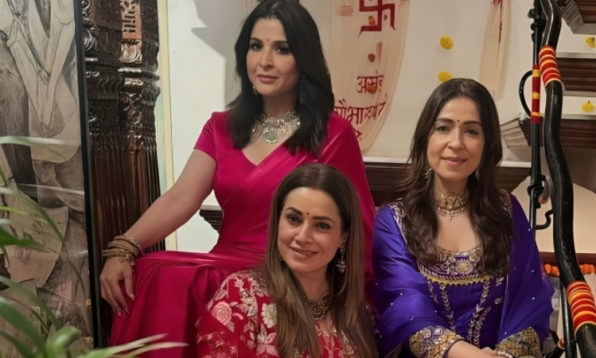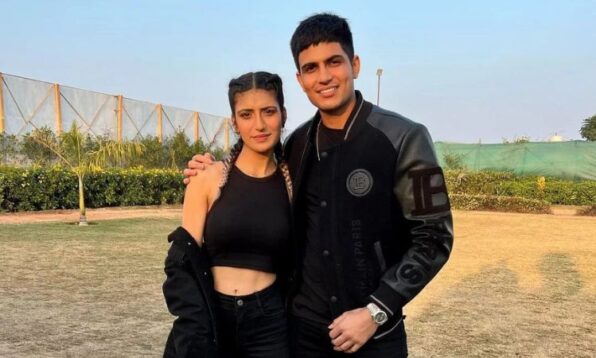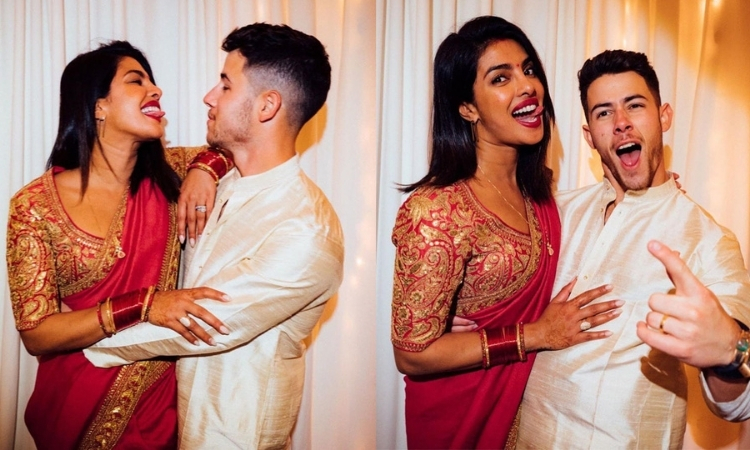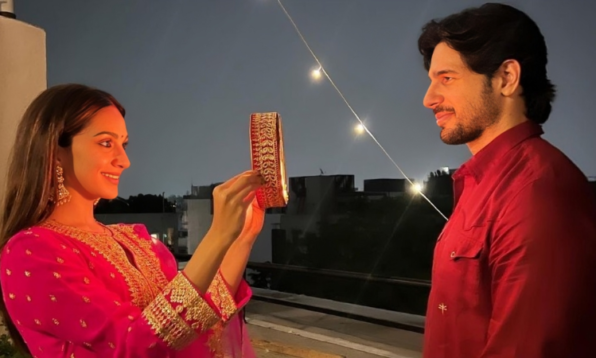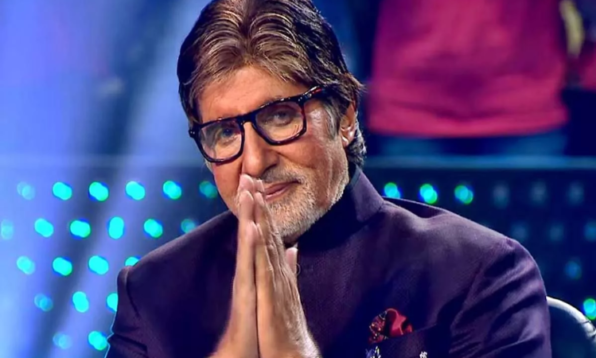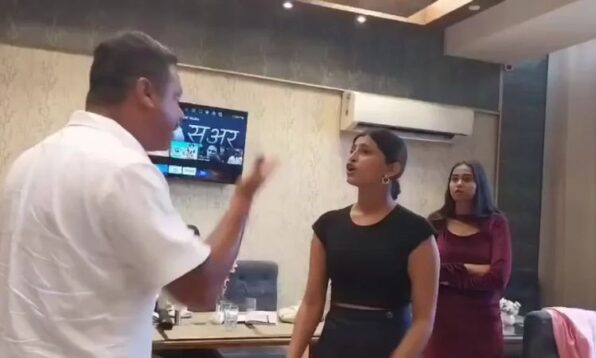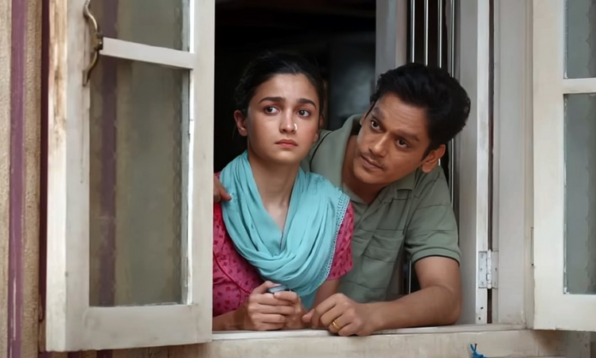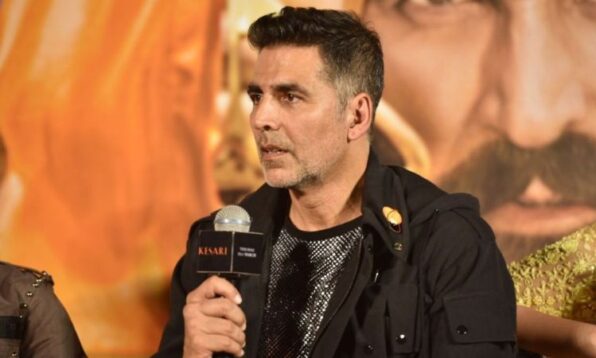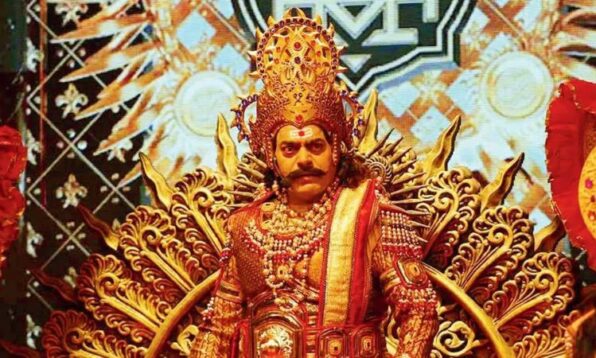Karwa Chauth – a festival where women (mostly north Indian) fast for the whole day to pray for the well-being of their husbands. It doesn’t make sense logically, but a lot of rituals don’t. However, it is Karwa Chauth that has become the main focus of ridicule in the past few years. To each her own, we say. But has criticising Karwa Chauth in the 21st century and the women who fast become more of a fashion statement? There are several more traditions that come from notions of patriarchal supremacy, like giving a daughter away during her wedding. Do we criticise and ditch all such traditions? The logical answer would be yes, but we don’t. To slam one tradition and celebrate another, born from similar beliefs, is a lot like Indians talking about how racist the West is but stereotyping African expats in India as ‘drug dealers’.
Can gender equality and Karwa Chauth co-exist at a time when women are fighting for their rightful place in the world every day? How do we justify a tradition in which women are expected to fast for their husbands’ long lives, but there is no such expectation from the men?
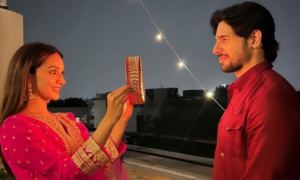
Of course, Karwa Chauth now is more relaxed than it used to be. It’s quite common now for husbands to fast with their wives. This is considered a cute gesture on their parts, but why is anyone fasting? Is it all just to appear woke and gather likes on social media? Is it to justify keeping patriarchal traditions alive?
“I do not understand the concept of Karwa Chauth at all, and I’m not going to fast when and if I get married,” Kashika, a journalist based in Mumbai, tells us. “I don’t even care about the husbands fasting for the wives, and I definitely don’t think it’s cute or romantic. The whole thing is very dumb because it’s just about the optics, and fasting for someone is not going to make them live longer or make your marriage a success.”
The ladies who do fast argue it’s more about tradition and celebrating an occasion with family, more than staying hungry.
“I fast as everyone does, including my family and friends,” Radhika, who works in the fashion industry, says. “It’s more of a tradition and a social event at the same time. Everyone is fasting, getting mehendi, wearing nice clothes, and getting gifts.”
Kangan, a full-time mom with a full-time job, has a more personal reason for choosing to fast every year. “In these uber modern times, it gives me a sense of mooring to continue to attach to traditions,” she says. “Karwa Chauth is also another reason to celebrate our culture and traditions. All of this along with eternal protection for my husband. It’s too good to not celebrate.”
Believing in the myth that fasting adds to one’s husband’s life is no longer mandatory for this festival. In fact, more and more women who fast do so for various reasons that have little to do with the story behind the festival.
“I choose to fast on Karwa Chauth not because I believe I’m contributing to my husband’s long life but because I get another reason to tell him he’s special,” Vasundhara, a marketing professional, says. “The idea of fasting to convey that is a mere effort to detox via intermittent fasting. I can be sceptical about a lot of things, but a day that brings a family closer will always be a happy day for me.”

Keeping traditions alive is an important part of our lives, especially in India. Every family has some customs and rituals which no one really understands but still follows. Whether it’s the comfort of the familiar or recreating a happy childhood memory, traditions are a part of daily life. Then why is it that Karwa Chauth is fading fast from our list of traditions, at least for millennials? We asked a few married women why they don’t fast, considering there are many people around who are ready to nag them for being unfeeling and insensitive.
“Marriage doesn’t mean being a pativrata, also known as mothering your husband. It’s a partnership between a man and a woman, and no partnership binds one person to go hungry for the other,” Divya, a public health expert, says. “Instead, we should try to keep this institution of marriage relevant by being more sensitive to each other’s needs. The need for space, individual growth, and new ideas. To not belittle each other in public or in front of your kids. To not take each other for granted, to not be stuck to each other because society says so. By respecting each other’s opinions even if you disagree. Most of all, making it a fun place rather than an obligation.”
Meghna, a corporate communications professional, tells us, “I don’t fast because it’s the 21st century and the concept of Karwa Chauth is so archaic. There are better, logical ways to make your husband live longer, like working out together and monitoring his diet.”
At the end of the day, it’s all about making your own choices and recognising everyone else’s right to do so too. It’s not about imposing your beliefs on someone else, regardless of what they are. Like one of the women we spoke to said, “Bas kar leti hu yaar, ismein kya behes karna kisi se“.
Featured Image Source
Related: Karwa Chauth 2025: Is Fasting For Your Partner’s Life Still Relevant?

 Web Stories
Web Stories
